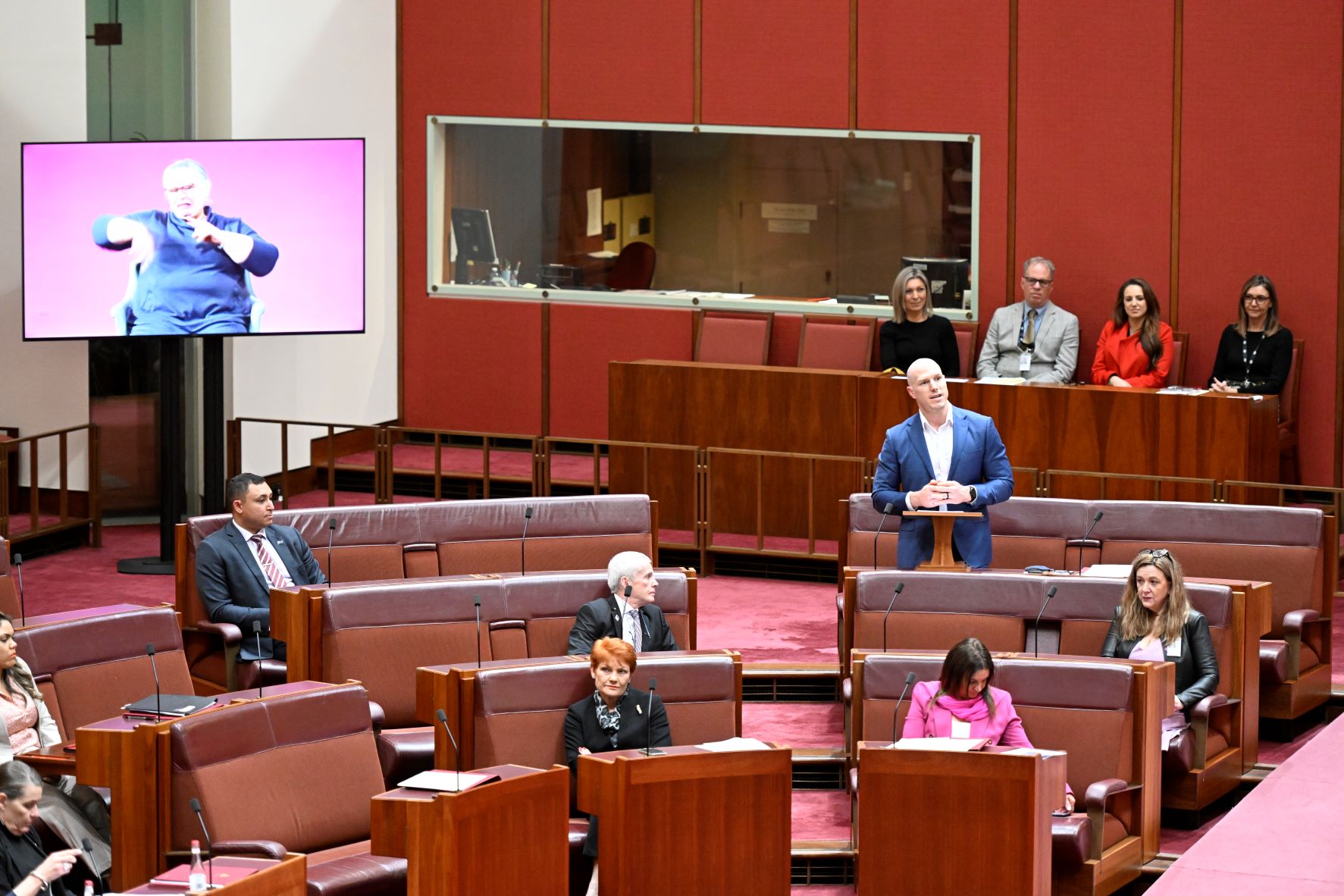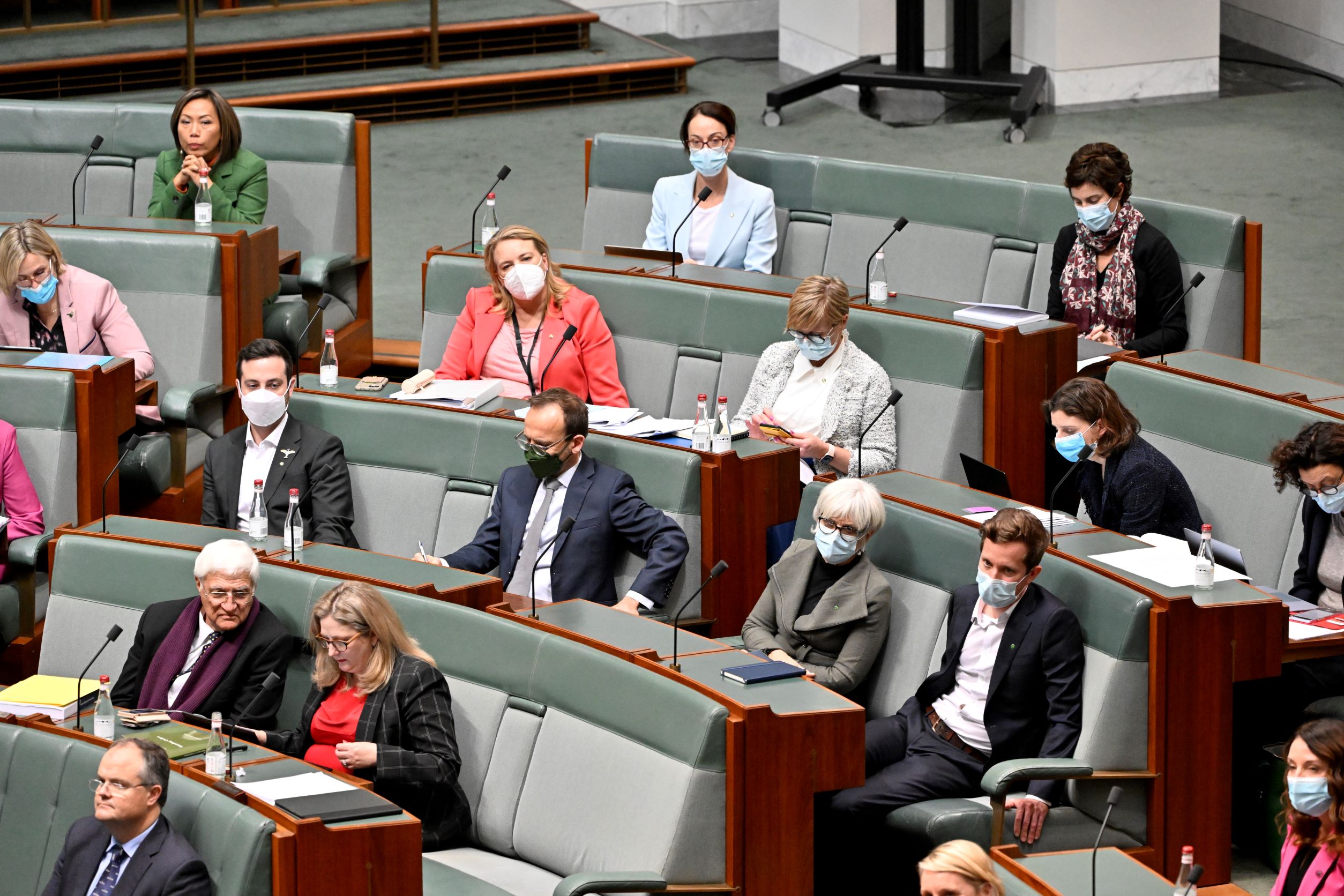Independents
An independent is a member of the Australian Parliament who does not belong to a political party. This fact sheet explores their role and how they can vote in the Parliament.
What will I learn?
- Independents are members of the Australian Parliament who do not belong to a political party.
- Independents take part in debates, and can introduce and vote on bills.
- Independents sit on the crossbench.
Curriculum alignment
Year 9 ACHCK075
What is an independent?
An independent is a member of the Australian Parliament who does not belong to a political party. An independent can be a senator or a member of the House of Representatives. Independent senators represent their state or territory and independent members of the House represent an electorate. Independents sit on the seats that curve around at the end of the Senate and House. These seats are called the crossbench.
Minor parties and independents in the Senate.

Graham Tidy/DPS Auspic
Description
Minor parties and independents in the Senate.
Copyright information
Permission should be sought from DPS AUSPIC for third-party or commercial uses of this image. To contact DPS AUSPIC email: auspic@aph.gov.au or phone: 02 6277 3342.
What does an independent do?
Independents speak and vote on behalf of the people they represent like all members of parliament do. They do this by:
- debating and voting on bills – proposed laws
- giving speeches in Parliament
- working on committees that look into important issues
- scrutinising – closely examining – the work of the government.
An independent can also introduce their own bill. These are called private member's or private senator's bills. Since bills cannot pass without the support of the majority, private bills usually do not become laws.
Voting in the Parliament
Members in the House of Representatives.

DPS Auspic
Description
Members working in the House of Representatives.
Copyright information
Permission should be sought from DPS AUSPIC for third-party or commercial uses of this image. To contact DPS AUSPIC email: auspic@aph.gov.au or phone: 02 6277 3342.
Members in the House of Representatives.

DPS Auspic
Description
Members working in the House of Representatives.
Copyright information
Permission should be sought from DPS AUSPIC for third-party or commercial uses of this image. To contact DPS AUSPIC email: auspic@aph.gov.au or phone: 02 6277 3342.
Members of parliamentary parties usually vote together to support or reject an idea in Parliament. Because independents do not belong to a political party, they can make up their own mind about whether to vote for or against an idea. Independents sometimes vote with the government and sometimes with the opposition on an issue. On some occasions, an independent may choose to abstain – choose not to vote.
Balance of power
The government often does not have a majority in the Senate. Independent and minor party senators can have the balance of power – their vote can decide if a bill is passed or fails.
If no party – or coalition of parties – has more than half of the seats in the House of Representatives after a federal election, government can still be formed with the support of independent and/or minor party members. They do not join the government; they agree to support the government’s budget and support it in a no confidence vote. This is called a minority government.